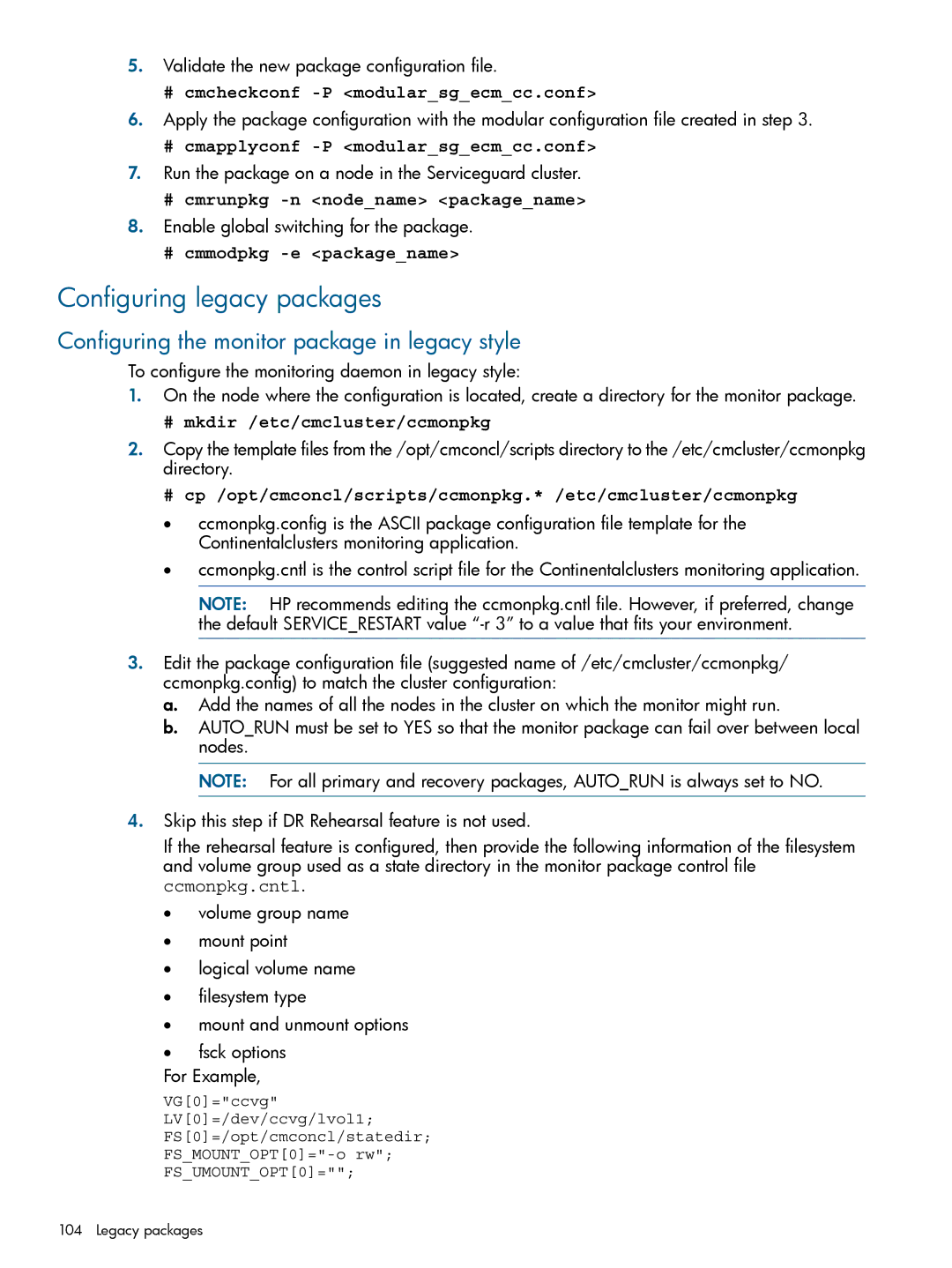
5.Validate the new package configuration file.
#cmcheckconf -P <modular_sg_ecm_cc.conf>
6.Apply the package configuration with the modular configuration file created in step 3.
#cmapplyconf -P <modular_sg_ecm_cc.conf>
7.Run the package on a node in the Serviceguard cluster.
#cmrunpkg -n <node_name> <package_name>
8.Enable global switching for the package.
#cmmodpkg -e <package_name>
Configuring legacy packages
Configuring the monitor package in legacy style
To configure the monitoring daemon in legacy style:
1.On the node where the configuration is located, create a directory for the monitor package.
#mkdir /etc/cmcluster/ccmonpkg
2.Copy the template files from the /opt/cmconcl/scripts directory to the /etc/cmcluster/ccmonpkg directory.
#cp /opt/cmconcl/scripts/ccmonpkg.* /etc/cmcluster/ccmonpkg
•ccmonpkg.config is the ASCII package configuration file template for the Continentalclusters monitoring application.
•ccmonpkg.cntl is the control script file for the Continentalclusters monitoring application.
NOTE: HP recommends editing the ccmonpkg.cntl file. However, if preferred, change the default SERVICE_RESTART value
3.Edit the package configuration file (suggested name of /etc/cmcluster/ccmonpkg/ ccmonpkg.config) to match the cluster configuration:
a.Add the names of all the nodes in the cluster on which the monitor might run.
b.AUTO_RUN must be set to YES so that the monitor package can fail over between local nodes.
NOTE: For all primary and recovery packages, AUTO_RUN is always set to NO.
4.Skip this step if DR Rehearsal feature is not used.
If the rehearsal feature is configured, then provide the following information of the filesystem and volume group used as a state directory in the monitor package control file ccmonpkg.cntl.
• volume group name
• mount point
• logical volume name
• filesystem type
• mount and unmount options
• fsck options For Example,
VG[0]="ccvg"
LV[0]=/dev/ccvg/lvol1;
FS[0]=/opt/cmconcl/statedir;
104 Legacy packages
